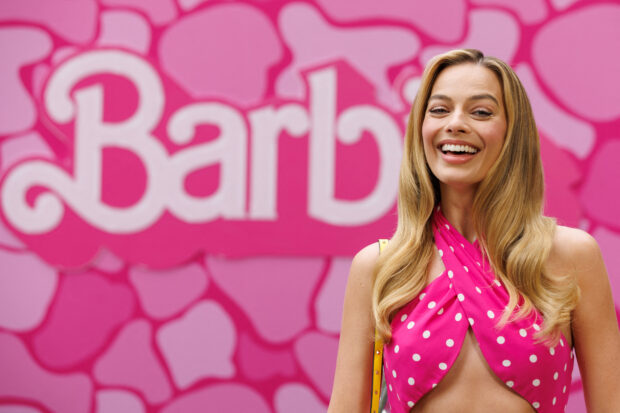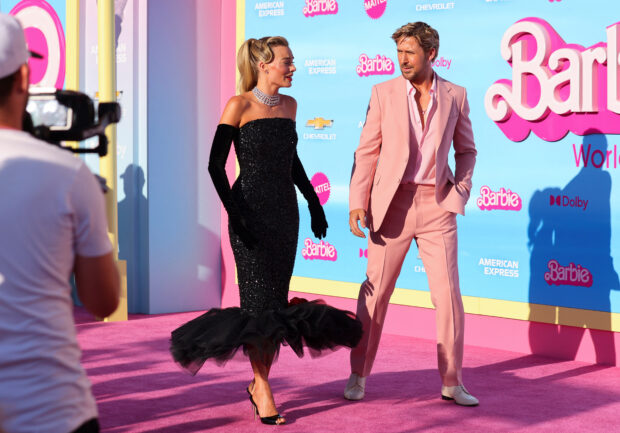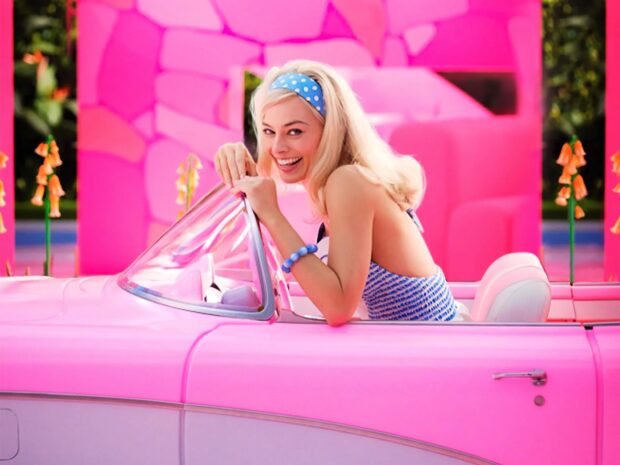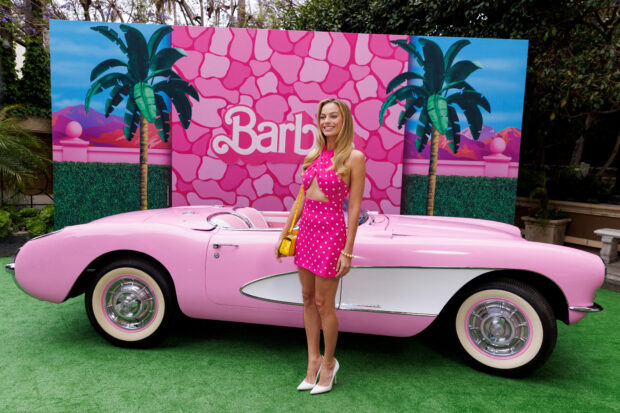‘Barbie’ in the real world

Actor Margot Robbie is photographed during a photocall for the upcoming Warner Bros. film “Barbie” in Los Angeles, California, U.S., June 25, 2023. REUTERS/Mike Blake
Some girls hated pink. It may not be because they were born to dislike this color, but that maybe it was society that instilled that “hate.”
This aversion to pink may have come from remarks made by elders, relatives, and even peers that denigrate those who wear this color as stereotypes of brainless and frivolous women. Consequently, not wanting to be associated with such traits, some girls discarded their fondness for this color.
This must be the same experience that sorority girl Elle Woods, Reese Witherspoon’s character in the 2001 cult classic film “Legally Blonde,” had to go through. Her boyfriend Warner Huntington III broke up with her because he needed to marry a “Jackie [Bouvier Kennedy]” and not a “Marilyn [Monroe],” telling her that she wasn’t serious enough for his senatorial dreams. In order to win Hunter back, Elle decided to also go to Harvard Law School like him, and later on became a lawyer — proving to all and sundry that she wasn’t the bimbo that her favorite color would suggest.
Elle Woods reminds us of Barbie — yes, the plastic doll living in a wondrous world full of (gasp!) pink.
Barbie comes to life in the live action movie adaptation by Greta Gerwig, and — as in the Mattel variety — the girls are as diverse as they come in all their pastel splendor.
Article continues after this advertisementWhen Gerwig introduced her to us, she was the stereotypical Barbie in frilly dresses and high heels, with charming naïvete, finding herself having an existential crisis after suddenly literally falling flat on her face and having unwanted thoughts about dying. Played by Margot Robbie, “Stereotypical Barbie,” who was supposed to be “everything,” realizes that everything about what she knew in Barbie Land has gone awry in the “real world.” Such was the case that Sasha (Ariana Greenblatt) blurted out to her: “You set the feminist movement back 50 years, you fascist!”
Article continues after this advertisement
Margot Robbie and Ryan Gosling walk on the pink carpet for the world premiere of the film “Barbie” in Los Angeles, California, U.S., July 9, 2023. REUTERS/Mike Blake
Gerwig’s “Barbie” appears to be in keeping with her previous women-centered films — “Lady Bird” (2017) and “Little Women” (2019) — which double down on the pressing issues that women face. Gloria, the character of the scene-stealing America Ferrera, encapsulated this anomaly in a single line: “It’s literally impossible to be a woman.”
Gloria’s impassioned speech resonated so much with a lot of women, and rightly so. It’s easy for some to criticize the film for barely scratching the surface in women empowerment, because in the real world, society is composed of people fully consumed by ideals that tipped to the side of patriarchy. The system is indeed “rigged” against women. So rigged that when Ryan Gosling’s Ken brought patriarchy — and horses — into Barbie Land, it is viewed by some as a call for desperation to be noticed by her. Despite the fact that many people overlook the conscious decision men must make to break away from patriarchy, the notion persists that being a “real man” is portrayed as emulating Ken in the second act — horse-riding, degrading dialogues, and so on.
Patriarchy was not simply brought to Barbie Land. The blatant display of horses as an apparent show of masculinity to counteract Barbie’s pink world, and establishing his Mojo Dojo Casa House at Barbie’s expense manifest Ken’s desire to overrule Barbie into becoming his “long-term long-distance low-commitment casual girlfriend.” Then there was Mattel intern Aaron Dinkins, played by Connor Swindells, asking Mattel’s male-dominated executives, “I’m a man with no power. Does that make me a woman?”
It is also a wake-up call to show the reality of patriarchy and how it shaped the real world into becoming a difficult place for women.
“Barbie” hits the audience over the head with on-the-nose dialogues and visuals is an intentional move on Gerwig’s part to portray how patriarchy always existed since the beginning of time. The film holds men accountable for seeing Barbie as an object, such that every young girl aspires to emulate the beauty of their Barbie doll.
In many sequences, Barbie bore the discomfort of being catcalled, indicating that women don’t want to just stand still and look pretty. The mere fact that that there are so many variations of Barbie dolls around the world shows that women “can be anything,” if they set their mind to it — a journalist, lawyer, diplomat, doctor, president, or even just an “average Barbie” who wants to get through life.

Margo Robbie as Barbie. Image from Warner Bros. Pictures.
But it’s not perfect. There were certain scenes that felt like Mattel was trying to lampshade its shortcomings in pop culture as some sort of a schtick, only for it to be sidestepped in the end. The executives immediately turning down Gloria’s “average Barbie” proposal only to accept her idea since it “makes money” is a glaring example of this. The CEO (Will Ferrell) telling Barbie that the corporation has had “two female CEOs” since its launch, as a defensive response to her inquiry about female leaders is another. Does it somewhat portray the company hiding itself with satire in hopes of freeing themselves from being accountable for its errors? We may never know.
Another critique would be fumbling with the loose ends of Barbie Land’s improved constitution in the final act. How will the Barbies treat the outcast dolls, the discontinued Barbies, and Kens? What happens to Gosling after donning his “Kenough” sweater, and how will he establish his identity without her? How will Barbie Land move forward after its past hardships?

FILE PHOTO: Actor Margot Robbie is photographed during a photo call for the upcoming Warner Bros film “Barbie” in Los Angeles, California, United States, June 25, 2023. REUTERS/Mike Blake/File Photo
This film is a 114-minute romp that triggered “a particular ripple in the universe,” which was pointed out by Gerwig herself. Hari Nef’s Dr. Barbie is one of those ripples that seemed mundane to outsiders, yet it’s a sliver of hope for those who need it too.
Come to think of it, women dressed their Barbie dolls as a form of manifestation to the universe of what they wanted to be in the future. Even if the real world “has one ending,” the film reminds viewers that anyone’s destiny can be shaped with its “ever-evolving history.”
Some might end up taking a high-paying job or fulfilling a life-changing purpose, but there’s nothing wrong in ending up like Ferrera’s “average” life. EDV